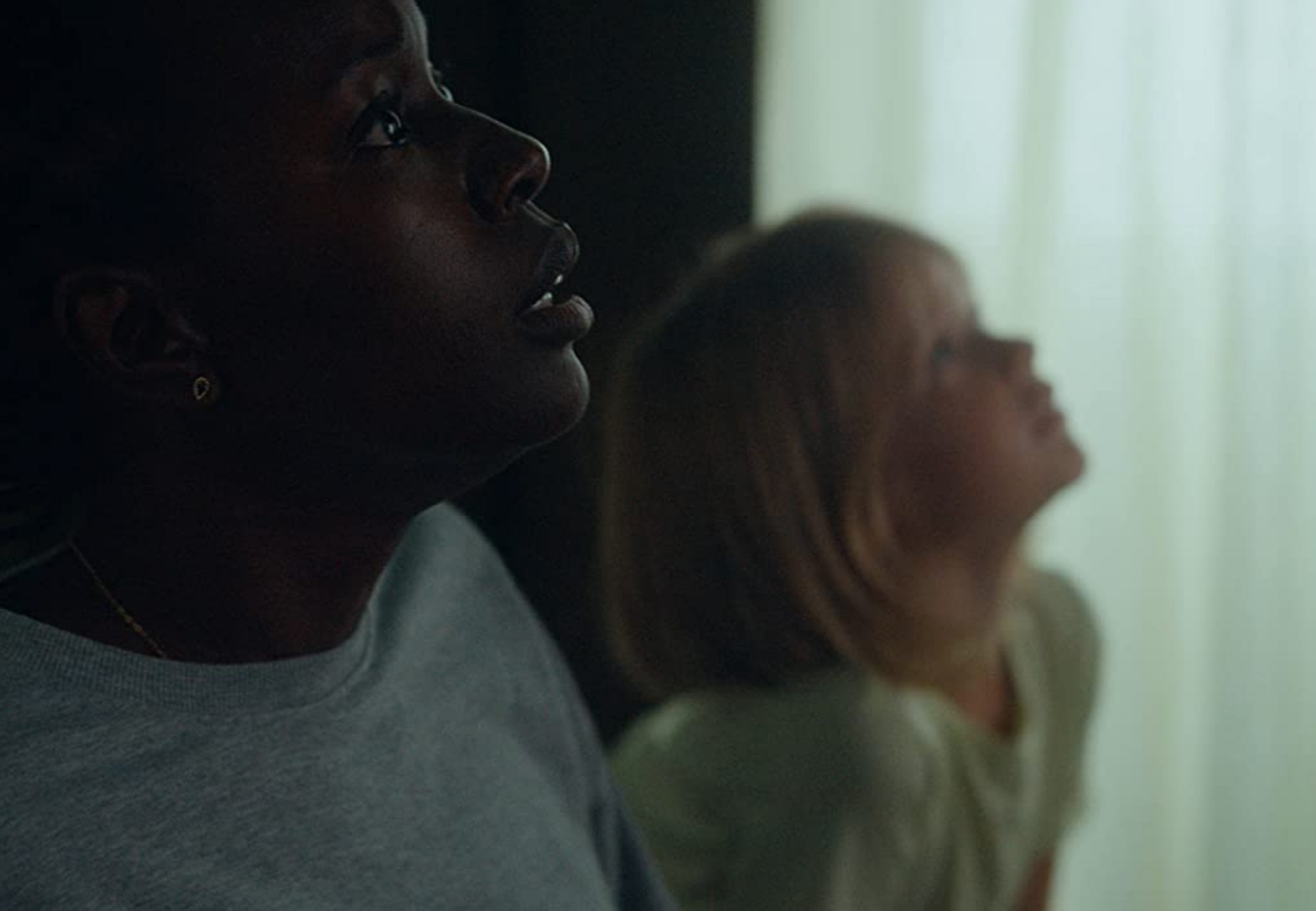
- Festivals
“Nanny” – Maternity in Peril
At Sundance’s opening press conference, Senior Programmer John Nein mentioned that this year’s lineup would include several films which would use genre elements in order to tackle profound topics. Nanny, with Anna Diop and Michelle Monaghan, belongs in this category. It contains horror and supernatural elements and is about the pain of a mother who leaves her son behind in order to emigrate to America.
In the Q&A following the film’s premiere, Nikyatu Jusu, the first-generation Sierra Leonian-American director of Nanny, revealed that she “reveres” international cinema for “maneuvering genre and incorporating multiple genres in one piece.” She continued, “I think that the reality of our lives, especially now in a pandemic, is that we’re maneuvering a real-life horror film … and there is a lot of loss and there is a lot of grief, but also, we are finding pockets and valleys of joy – and life is complicated.”
Nanny tells the story of Aisha (Diop), a young Senegalese undocumented worker who lands a job as a nanny for a wealthy New York family. At first, all seems to be going as planned. Rose, the little girl, becomes fond of Aisha; Amy (Monaghan), Rose’s elegant and friendly mother, is delighted to entrust her daughter to Aisha; Aisha feels comfortable in her new job and her small community of African immigrants.
Little by little, however, Aisha’s feelings change as she notices that Amy frequently forgets to pay her “what she’s owed.” Simultaneously, her longing for her seven-year-old son, who is left behind in Senegal, becomes unbearable and is accompanied by disturbing underwater visions.
While there appears to be no specific culprit causing Aisha this inexplicable angst, the audience feels unsettled along with her, as if mysterious and unpredictable forces are rising to the surface from the depths of …?
Mati Diop’s Atlantics (2019) made known the Senegalese affinity with the supernatural, especially as a means to express something larger than mere words and logical sequences can afford. Likewise, Nanny is infused with frightening and evocative images that appear to be springing out of a legacy of female oppression, neglect, rage and unrealized desires.
We, the audience, are never sure whether these intrusions are contained within Aisha’s psyche or come from without. What we clearly witness, though, is Aisha’s descent into a sort of watery hell. And, somehow, we cannot help but feel partially responsible for her deterioration.
“We haven’t seen enough films that truly reflect the disproportionate level of black and brown women who [are] the domestic workers that keep this country afloat and keep it alive and keep us all alive and healthy, and so I wanted to center women who typically are on the periphery of other women’s stories,” said Jusu.
For Diop, who played Aisha, Jusu’s script felt really close to home: “To be an immigrant takes a lot of courage and a lot of fearlessness – to come from a foreign place and dare to make a life for yourself, a life that’s better from the place that you came from. That’s what my mom did, and that’s what Aisha is trying to do.”
As a white privileged woman herself, Monaghan, who plays Amy, found working on this film both confronting and inspiring. It was important for her that female audience members would identify with her character “not in a sympathetic way,” so that they may realize the ways in which white, privileged women “perpetuate and contribute to how we marginalize and continue to limit other women, or how we benefit from them.”
She adds that, despite the tensions between the two women in the film, they need “each other to survive the intersection of womanhood and parenthood in a patriarchal society.” Monaghan’s words ring true. Nanny does not stem solely out of a critical predisposition toward the state of women in western society. It is pulsating with energy – energy that propels the heroine to a new, independent existence.
Black immigrants, Jusu went on, must learn that they are “no longer affiliated with a tribe or an ethnicity or a nationality, [they] become just ‘Black.’” Yet, this condition contains the seed of change, growth. “It’s an opportunity to realize that you can start again in a new way with a new community in America, a new community full of diasporic Black people, Black Americans.”
The community of other women “who corralled around Aisha in this story are [the ones] who essentially helped her to realize her power and step into her power.” Jusu’s love for her own kind – something she attributes to her closeness with her mother – underlies the story, from the beginning to the end. Aisha, whether she recognizes it or not, is never left alone to fend for herself.
As frightening as they are, the feminine, formidable supernatural creatures “represent figures of intelligence and ingenuity and survival. They are trying to grow [Aisha], they are trying to teach her, they’re trying to guide her,” Diop chimed in.
The film’s hopeful ending expresses Jusu’s positive attitude toward the future. “My intention was to convey that Aisha will survive, and [that] she has been enriched by this new community that she never thought she would be a part of,” she said.
After generations of mothers making sacrifices so that their sons and daughters could have a better life, there comes a day when a better life, supported by community, becomes – magically – possible.

